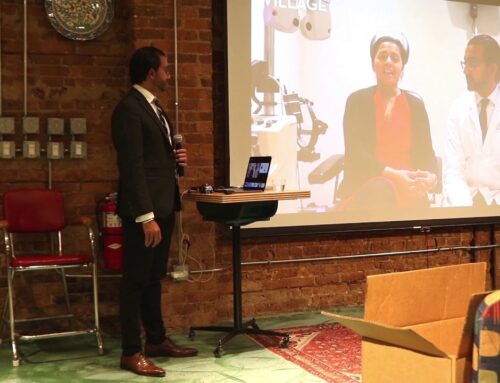Is Your Vision Foggy Because of Cataracts?
 If you feel like you are living in a fog, then it is time that you talk to your optometrist about your vision. Cataracts are a common concern, especially among the older generations. Even though this eye disease is common, it doesn’t reduce your need to schedule an appointment with an eye doctor.
If you feel like you are living in a fog, then it is time that you talk to your optometrist about your vision. Cataracts are a common concern, especially among the older generations. Even though this eye disease is common, it doesn’t reduce your need to schedule an appointment with an eye doctor.
What You Need to Know about Cataracts
The lens on the eye is usually clear to allow light to move through to the retina. But, cataracts can develop with age, causing the lenses to cloud over and reduce your vision. As the cataracts progress, your vision will continue to decline.
These are some of the symptoms that are usually associated with cataracts:
- Dimmed vision
- Cloudy vision
- Blurred vision
- Frequent changes in prescription lenses
- Difficulty with night vision
- Light and glare sensitivity
- Double vision
- Halos around lights
- Changes in colors
If you have cataracts, then it is likely that you will find it difficult to drive. Or, some people notice the vision changes the most when they are reading. Usually, the long-term vision is affected first, but the severity of the vision problems varies from one person to the next. Eventually, these vision changes can impact everyday life, making it hard for older adults to maintain independence.
In the beginning, you might not realize that there is a problem with your eyes. Then, the symptoms get worse, and you suddenly realize that you need to talk to an eye doctor. Instead of waiting for severe symptoms, it is better to maintain regular eye appointments so that your doctor can help with the early detection of cataracts.
Why Cataracts Form on the Eyes
The eye lens should stay clear so that you can maintain good vision. So, why are you suffering from clouded lenses? The lens contains proteins that hold the formation of the lens and allows light to move through. But, age changes the way the proteins are formed. As a result, the proteins might start to clump together on the lens of the eye. This clouded section is known as a cataract. The proteins can continue to collect over time and increase the vision problems that you experience.
There are different types of cataracts, and your eye doctor can help you with a specific diagnosis. Once the cataract has formed, there is nothing that you can do to reverse the damage to the eye lens. But, it doesn’t mean that you have to suffer from poor vision for the rest of your life. Technology has been developed that makes it possible to replace the lens with a simple surgical procedure. So, many people choose this cataract treatment to improve their vision.
It is essential that you maintain regular visits with a local Chicago optometrist. Your eye doctor can assess the progress of the disease and help you choose the best treatments to support your vision.
At Village Eyecare, we are committed to the health of our patients. For more information about cataracts and other eye diseases, please schedule an exam with our team. We have four offices here in the Chicago area.







